What are indie buyers from around the world looking to acquire from the autumn festivals and which ones do acquisitions executives intend to visit in person? Screen talks to a selection of key distributors about their plans for the next few months.
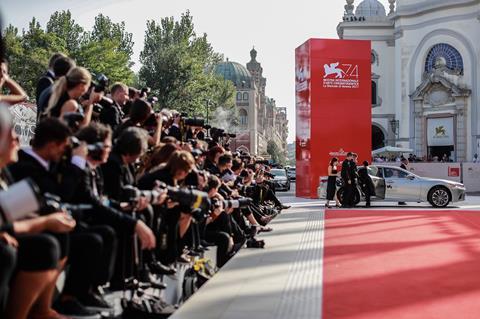
Nothing is certain during this strange year, but the Venice Film Festival opens on Wednesday, September 2 and will be the first physical A-list event of the year since the international film industry gathered in Berlin in February. With Covid-19 hygiene protocols in place, it will be a physically distanced festival with far fewer delegates than usual. Toronto then takes place as a mainly digital festival as far as anyone outside Canada is concerned and with far fewer films than it usually showcases. Meanwhile, San Sebastian’s organisers are keeping everything crossed they do not have to change their plans at the very last minute, as Sarajevo was forced to in August due to rising Covid cases in the country.
Acquisitions executives from around the world are engaging with these festivals in very different ways. Some intend to attend Venice at least in person, and all plan to engage digitally with Toronto. The virtual Cannes Marché in June showed remote business could be done — but at what cost? The buyers here talk about what they learned from those five days in June (“Schedule toilet breaks,” says one). They reveal if they are even in a position to buy or are instead working through a backlog of films still to be released in only-just-opening cinemas, and how they are judging what kind of films might tempt audiences back to cinemas.
Louise Tutt, deputy editor
US
By Jeremy Kay
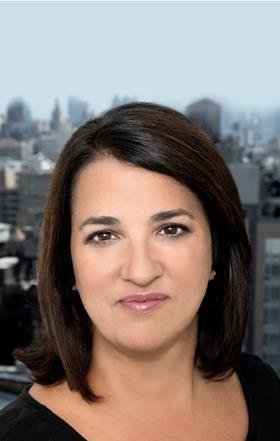
IFC Films
Arianna Bocco - Executive vice-president of acquisitions and productions.
A pioneer in the day-and-date theatrical and VoD model, New York-based IFC Films has been nimble in times of change and scored a hit over the summer with The Wretched, which grossed more than $1m at US drive-ins. Coming up are Sputnik, Sundance selection The Nest and SXSW award winner Shithouse.
Will you get to any festivals in person this year?
Our team does not anticipate travelling to cover festivals in person for the remainder of 2020. Digitally speaking, we will cover everything we can that makes sense for us and our acquisitions strategy.
What did you learn from the virtual Cannes Marché about doing business remotely?
We learned it was very efficient and inclusive. Cannes is spent running around from hotels to the Palais in between screenings, and it’s very hectic. While there’s a great buzz and excitement and adrenaline, you sometimes walk away feeling like you haven’t quite covered everything.
We’ve learned [digital] was a very efficient way to make sure you covered all the sales agents and understood all of their slates. It was a very focused time for us and I had no distractions, other than my dog. We blocked out 30 minutes of one-on-one time with sales agents, which was productive in the current environment and a good way to actually do business. However, it is not a long-term replacement for face-to-face deals.
What slots do you need to fill?
For 2020 we’re fairly scheduled and so, at this point, we’re mostly looking to acquire for 2021. If a really compelling awards season film comes our way, we would absolutely consider it as the new awards deadlines extend through February. We are not bound this year by traditional deadlines so it gives us flexibility, which potentially could inspire something that we have yet to acquire or rethink films we’ve already acquired.
Are you hoping to buy roughly the same amount of films at the fall festivals as you typically acquire around this time of year?
We hope to buy the same amount, but it’s unlikely the same amount of films will be presented to us as available to buy. Because Toronto has made their slate much smaller, films that might have been presented for sale at that time are probably going to wait until Q1 [2021]. It will likely be competitive and a sellers’ market.
How has the pandemic changed the company as a buyer?
This is really the million-dollar question. I’ve said for a long time that we’re going to look to come in earlier on titles so we can be part of the release strategy at an earlier stage and this is a change that will probably stay, so that’s a shift for us as a buyer. We’ve realised this year with everything happening and with the success we’ve had at drive-ins that you can actually rewrite the rules.
We’re looking towards the future and asking ourselves how do we make sure drive-ins continue to be part of our strategy, but also look to other ways of releasing our films. One of our strengths is that we have the flexibility to release films in different ways and, as we have amazing partners on the ancillary side, we were able to survive and thrive during a pandemic.
We have never in the past acquired for VoD only. We are a theatrical distribution company and that’s how we see ourselves, and VoD is part of a larger integrated release so I don’t see us acquiring for VoD only — it’s an important part of a larger transactional strategy but a different model.

Roadside Attractions
Howard Cohen - Co-president and co-founder.
The Los Angeles-based distributor releases arthouse, commercial and faith-based films and is part-owned by Lionsgate, which handles Roadside films for ancillary windows such as VoD and television. Recent Roadside releases include Rupert Goold’s Judy and Tyler Nilson and Michael Schwartz’s The Peanut Butter Falcon.
Will you get to any festivals in person this year?We don’t plan to participate in person at any festivals right now, given what’s available to attend, but look forward to virtually attending TIFF, and hope to return to Park City for Sundance at the beginning of the year.
What did you learn from the virtual Cannes Marché about doing business remotely?
It was a little daunting at first with sales agents all using different tech platforms to screen films. But we got into the rhythm and did see a few good films. Virtual meetings were pretty much always on time and focused and fruitful. Something is gained and something is lost in terms of not travelling, meeting up, seeing all the festival folk and friends, but as a novelty — once — it was nice to skip the jet lag and 25 trips up and down the Croisette.
What slots do you now need to fill?
We need to buy films for 2021. We have two films we acquired in Sundance that we will release this fall: The Glorias, Julie Taymor’s Gloria Steinem biopic starring Julianne Moore and Alicia Vikander, and The Courier, a Cold War-era spy thriller with Benedict Cumberbatch and Rachel Brosnahan. We also have coming up Our Friend [formerly The Friend] with Casey Affleck, Jason Segel and Dakota Johnson. We also might take on something else for the awards season.
Are you hoping to buy roughly the same amount of films at the fall festivals as you typically acquire around this time of year?
I would say we are hungrier for films than we would normally be at this time of year, given all that’s happened and the shutdown period.
How has the pandemic changed the company as a buyer?
For its 17-year history, Roadside Attractions has been theatrically focused and box office has been our measure of success. Right now, together with our partners at Lionsgate, we are releasing a few of our current films on VoD-only, including The Secret (which was released on PVoD on July 31), purely because theatres have been closed. We are definitely looking at the possibility there could be new models that make sense for us. But it will be in the context of looking at how theatrical comes back over the next six months to a year, and how transactional VoD settles down after the pandemic.

Bleecker Street
Kent Sanderson - President of acquisitions and ancillary distribution.
Bleecker Street releases elevated genre films, and festival and critical hits. Recent releases include Lisa Barros D’Sa and Glenn Leyburn’s Ordinary Love, Kitty Green’s potential awards contender The Assistant, and Peter Cattaneo’s Military Wives, which was released on VoD platforms during the lockdown. Coming up are Noomi Rapace thriller The Secrets We Keep, directed by Yuval Adler, on September 16, which due to the pandemic will receive a truncated theatrical release before launching on VoD, and Sundance comedy Save Yourselves! in October.
Which festivals are you attending in person and which do you plan to participate in digitally?
I will definitely attend Toronto in some way — that festival is a big one for us. We will screen Toronto movies either through Toronto or the movies’ representatives. We plan to participate in the digital AFM, and whichever form Sundance takes we absolutely plan to be part of that. Forecasting beyond Sundance is hard for everyone. The optimist in me wants to say that I will be hopping on board a flight to Tegel [for Berlin’s European Film Market in February], but I have no idea.
What did you learn from the virtual Cannes Marché about doing business remotely?
We thought the virtual market was very efficient. We pre-bought Mr. Malcolm’s List, which is going into production early next year. We engaged mostly with the agency-led US platform, and the virtual Marché was very well run too. It was a good co-ordinated effort by both. I am not sure what’s more exhausting: running up and down the Croisette or hunched over my laptop on Zoom calls all day. I would be lying if I said nothing was lost by the lack of a physical presence. We love to see our international partners in person and look forward to seeing them next year.
What slots do you now need to fill?
We are not really in the slots business. We tend to jump on films we like either at script stage or later. As far as awards go, we’re figuring out our line-up and what the season will look like. We may pick up three or four films in the fall festivals one year, and then a year or two will go by before we pick up another one at these festivals.
How has the pandemic changed the company as a buyer, both in terms of how you release and market content, and what you’re looking for?
The Secrets We Keep is a great film to try out for this release model. We are releasing it theatrically on September 16. Supporting theatres as they reopen is a huge priority. It’s going to have a shorter theatrical window — 30 days before it goes on VoD in mid-October. Our behaviour has changed at least in the short term in terms of how we distribute. Exhibition will always be important to us. We continue to support the theatrical window, and in the case of The Secrets We Keep we want to make sure we carve out a meaningful theatrical release. We’re still looking at films for traditional release. We have done a bit of drive-in and I suspect we will do more. We haven’t released that many movies since the pandemic began and it has been interesting to watch that space evolve.
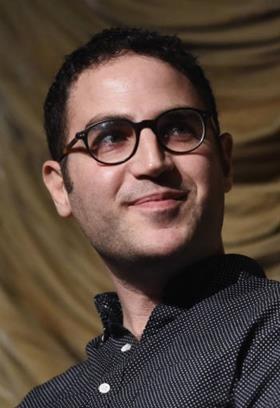
Neon
Jeff Deutchman – Executive vice-president of acquisitions and production.
Neon has earned a reputation for championing edgy films and festival favourites, often supported with eye-catching marketing campaigns. The company was behind the Oscar and box office success of Palme d’Or winner Parasite and released Spaceship Earth in the summer with the first outdoor New York screening since the lockdown began. Sundance hit Palm Springs was released at drive-ins and was watched more times than any other film in its first three days in July on acquisition partner Hulu, which the platform said was a record launch. The awards season slate includes Francis Lee’s Ammonite starring Kate Winslet and Saoirse Ronan.
Will you get to any festivals in person this year?
I’m in New York, so New York Film Festival is the most likely candidate for my [physical] participation. Otherwise, I’ll participate digitally barring some extraordinary change in circumstances.
What did you learn about doing business remotely from participating in the virtual Cannes Marche?
There is no substitute for seeing a movie in the Lumiere or Debussy.
What slots do you need to fill?
As always, we’re looking for movies that can break through the noise. We have Ammonite and Gunda coming up on the slate, two films we feel very passionately about that could not be more different.
Are you hoping to buy roughly the same amount of films at the fall festivals as you typically acquire around this time of year
Yes.
How has the pandemic changed the company as a buyer, both in terms of how you release / will release and market content, and what you’re looking for?
Regardless of whether a film is released in theatres exclusively, on VOD exclusively, or some hybrid, we look for films that are unique enough to be eventised. Breaking through the noise on VOD is no cake walk, and doing it without theatres is even harder. We are very much looking forward to the full return of theatrical so that we can have all the tools in the distribution arsenal to maximise our films.
UK
By Louise Tutt
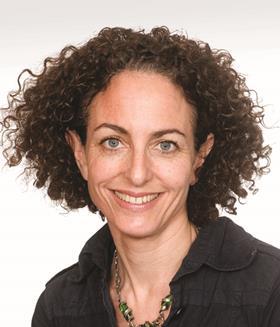
Curzon Artificial Eye
Louisa Dent - Managing director
When the UK went into lockdown and it was not known for how long cinemas would remain closed, Curzon decided to release its films exclusively on its curated PVoD platform Curzon Home Cinema. Titles have included Hirokazu Kore-eda’s The Truth, Safy Nebou’s Who You Think I Am, Oliver Hermanus’ Moffie, Corneliu Porumboiu’s The Whistlers and Grimur Hakonarson’s The County. As cinemas have reopened, those films are now on theatrical release. Dent bought Roy Andersson’s About Endlessness at the autumn festivals last year.
Which festivals are you attending in person and which ones are you participating in digitally?
I am hoping to be able to attend Venice physically. We usually attend and this year with the absence of a physical Cannes I realise how much I miss the people, as well as seeing films on the big screen and the excitement that goes with it. We do not usually attend San Sebastian, much as I would love to as it is such a nice festival, but it is just after Venice and Toronto and just before the BFI London Film Festival, a very busy time of the year, so we will attend virtually.
What did you learn from the virtual Cannes Marché about doing business remotely?
Jérome Paillard and his team did an amazing job in finding an alternative to the physical market in very trying times. I learnt that I worked just as hard, if not harder, but I missed the people, the film community and the magic of the festival. I cannot wait to see Fanny Liatard and Jérémy Trouilh’s Gagarine on the big screen.
Are you hoping to buy roughly the same amount of films at the autumn festivals you would normally?
Yes, we are looking to buy films for next year.
Will you look for more films for VoD only?
We’ve been actively looking for films that we can release on Curzon Home Cinema and will go on doing so.
Do you think audiences are looking for something different following this difficult period?
Cinemagoing was already becoming more polarised even before the pandemic. I hope audiences will gradually return, and not just for the tentpole films. We are, as always, looking for the best director-led films — this is in the Curzon Artificial Eye DNA. If we can find another Portrait Of A Lady On Fire or Parasite, I think audiences would be happy. We certainly would.
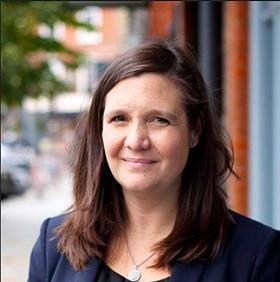
Modern Films
Eve Gabereau - Founder
Modern Films picked up Haifaa Al-Mansour’s The Perfect Candidate from Venice/Toronto last year, having discovered the Saudi director’s Wadjda at the same events in 2012. Gabereau acquired Viggo Mortensen’s Falling out of the Cannes 2020 label and it is now going on to play at San Sebastian and Toronto. Modern Films has used its own website to release titles including Nora Fingscheidt’s System Crasher (released by 606 Distribution) and Chinonye Chukwu’s Clemency on TVoD during the UK lockdown, with a percentage of the ticket price going to an independent cinema of the customer’s choosing.
Which festivals will you attend in the next few months?
I am planning to go to Venice and maybe San Sebastian. Venice to watch films, of course, but also to participate in the Production Bridge and the European VoD Meetings. San Sebastian because we are the UK distributor of Falling, which is screening there and they will honour Viggo Mortensen with the 2020 Donostia Award to recognise his career. Toronto will be sorely missed.
What did you learn from the virtual Cannes Marché about doing business remotely?
That it can be done — meetings and screenings and even acquisitions — but that it’s not the same. The line is blurred between day-to-day correspondence with sales agents about new films that I do on a regular basis and focusing on a few set dates around a festival brand and line-up. It helps when you know people already, so it’s hard to widen your network remotely and I imagine it’s even harder to be a newcomer under this model. That said, I have got a lot out of the online events associated with the festivals and markets, including Cannes. I even went to one party!
Are you in a position to buy more titles or do you have a backlog you need to release first?
Our release schedule is full until the end of the year, and it feels like a good time to take a deep breath and see how it all unfolds over the next few months. We know there are alternative ways of releasing films than in the cinemas and new ways of reaching audiences through virtual screenings, online Q&As and social media, but it would be good if we could find a balance between the two and get back to some “in real life” experiences with film.
Will you buy more films for VoD only?
I’m not keen on VoD only. I love VoD and all it represents, but there is so much more to releasing films and speaking to audiences than releasing them on a few well-trodden platforms. That’s why we are working with cinemas directly to offer them the chance to brand the viewing experience and space as theirs and keep talking to their own audiences. I like the idea of a first run in cinemas, then a move to a virtual screen run at a premium price point and offering, then on to TVoD and ideally SVoD then free TV. It’s a stronger chronology of media, with this extra step thrown in.
Do you think audiences are now looking for something different and will that affect what you buy?
I am looking for films that I know we can hook an audience around, create partnerships with key associated organisations and offer bespoke virtual and in-cinema screenings alongside online and/or in-person Q&As. We’ve always done this, but it seems the possibilities are greater in terms of working across more niches and reaching a wider audience over time. This takes commitment and tenacity, though. And there is a danger for indie films released territorially that they are deemed ‘too small’ for streamers or not global enough for a local acquisition, so there is work to be done to keep cultural vibrancy alive, starting with production.

Lionsgate UK
Nick Manzi - Head of acquisitions and production
The UK office of Lionsgate acquires completed films as well as developing its own projects. It was active during the virtual Cannes market, pre-buying Thaddeus O’Sullivan’s The Miracle Club, starring Maggie Smith, Kathy Bates and Laura Linney, and completed titles including Charles Martin Smith’s A Gift From Bob. Lionsgate presently has Jessica Swale’s Summerland on release in UK cinemas and on PVoD, as well as Military Wives and How To Build A Girl on SVoD.
Which festivals do you plan to attend in person?
Lionsgate UK is not attending any festivals in person for the rest of this year and possibly into next. All of the festivals should be commended for their amazingly swift and innovative digital alternatives, and virtual Cannes showed business can be done without travelling.
I miss the glamour, the rosé and the Cannes sun, and the warm welcome and fun of the Torontonians, but right now there is an alternative for acquisitions. Regarding Venice and San Sebastian, these are not festivals we attend usually.
What did you learn from the virtual Cannes Marché about doing business remotely?
That it can be done. You miss the buzz, the energy and the overpriced food and drink but technology allows us to watch films, read scripts and negotiate deals from anywhere in the world — including for me from my patio not far from Stonehenge. I was pleasantly surprised at how many new films were introduced to us buyers.
Are you hoping to buy roughly the same amount of films you do normally at the autumn festivals?
We are all about the quality of the films and their potential to find audiences. We have been releasing films throughout the pandemic and will continue to do so, and need to keep our slate full.
Are you looking for more films than before to release on VoD only?
We have clients across the value chain and have always bought films that have a specific home in mind. However, our key differentiator is the understanding of how a theatrical release can create a premium feel for a film.

Picturehouse Entertainment
Paul Ridd - Acquisitions manager
Picturehouse picked up Shannon Murphy’s Venice title Babyteeth at last year’s festival, followed by Maria Sodahl’s Hope and Justin Kurzel’s True History Of The Kelly Gang from TIFF. The latter was released theatrically before lockdown, Babyteeth came out on August 14 and a date for Hope is under discussion.
Which festivals are you attending in person?
Our plan is to attend Venice. Then we are participating in the digital aspect of TIFF. We may also attend San Sebastian, we’re just working it all out. It’s a tricky time but if we feel safe and it’s worth going, we’ll always favour going to a physical festival. Fall is usually a really key market for us to pick up completed projects.
What did you learn from the virtual Cannes Marché about doing business remotely?
It was an interesting experience. The upsides being the fluidity and ease of talking to sales agents, producers and filmmakers via Zoom, getting access to pitches and scripts, and being able to screen promos and features quite easily. The downside being the lack of a festival atmosphere, the mingling with critics and the public, and sharing of responses to movies and buzz. That kind of chemistry can never truly be recreated digitally, and it’s hard for specialist films to cut through without the physical exposure.
Are you hoping to buy roughly the same amount of films at the autumn festivals you would normally?
We have a number of films to release that we would doubtless have already got out by now under normal circumstances. But part of the nature of buying is about thinking ahead, so we’ve got 2021 on our minds and the return to full normalcy. We aren’t ruling out picking up more films.
GERMANY
By Martin Blaney & Louise Tutt
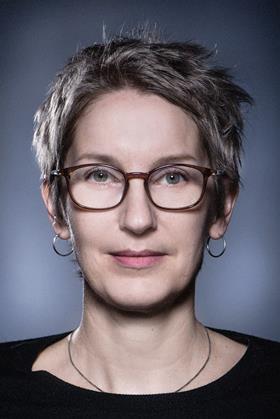
DCM
Wiebke Andresen - Head of acquisitions
DCM’s co-production Lindenberg! Mach Dein Ding, a biopic of German musician Udo Lindenberg, opened in German cinemas on January 16. It has sold more than 650,000 tickets, becoming a regular feature at drive-ins since early April. DCM released Alejandro Landes’s war story Monos in cinemas on June 4, and its co-production of Jonas Alexander Arnby’s thriller Suicide Tourist on July 2. The only other release in 2020 is Katrin Gebbe’s Venice 2019 title Pelican Blood on September 24. DCM has had a distribution arm in Switzerland since 2013.
Which festivals are you attending in person and which ones are you participating in digitally?
We will probably not be travelling to any more festivals this year except to Zurich, as we have a second headquarters there. The risk of infection is too high in many regions and keeping costs low is not wrong in the current situation, especially since there is the possibility of participating online at TIFF and AFM.
What did you learn from the virtual Cannes Marché about doing business remotely?
It’s possible to do business professionally in this way, not least because people know each other very well. However, the virtual festivals are limited to business only, and the daily exchange about new films doesn’t happen. An essential part of our business is also about looking to your left and right, to be inspired by new and old talents. That’s something I missed.
Are you hoping to buy roughly the same amount of films at the autumn festivals you do normally?
We don’t currently have a backlog of films. Our biggest film this year was a German-language production, Lindenberg! Mach Dein Ding, which fortunately had a successful premiere at the beginning of January and did very well. We already have a manageable line-up for 2021 and don’t necessarily have to find anything else. As always, if a film convinces us, we will make every effort to acquire the rights.

Leonine
Alexander Janssen - Senior vice president acquisitions
The distribution arm of German media giant Leonine is looking to release 20 films per year theatrically, focusing on titles with strong commercial potential and arthouse crossovers. It bought Peter Cattaneo’s Military Wives and Lorene Scafaria’s Hustlers out of Toronto 2019.
Which festivals will you attend in person and which ones are you participating in digitally?
We will not be attending physical markets or festivals this year. Both Toronto and AFM have already announced their digital versions, where we will definitely participate.
What did you learn from the virtual Cannes Marché about doing business remotely?
That times are changing — even if we all hope for some sort of future normalcy in these trying times, virtual events will most likely be part of that future. That’s not to say a virtual market can or should replace a physical one, especially the high-profile festivals and their programme being at the centre of everything, but we all have to find ways to adapt.
Are you hoping to buy roughly the same amount of films at the autumn festivals you do normally? Do you have a backlog of films you need to release?
We do have some backlog, but that will not be a reason for not buying a film if it has potential for us. We are open for business.
Will you look for more films for VoD only?
We have always had a strong VoD and home entertainment slate, but yes, it is more or less unavoidable to focus even more on this type of content/distribution route.
Are you looking for a different kind of film this year? Do you think audiences are looking for something different following this difficult period?
That’s a very good question and it’s difficult to anticipate what audiences’ tastes could be. However, a stronger focus on uplifting, positive, heartwarming and humorous content can never be wrong, and good popcorn movies will always be a welcome escape.

Weltkino
Bianca Obermaier - Head of acquisitions and co-productions
Weltkino releases around 12 titles a year, including Sally Potter’s The Party, Jafar Panahi’s Golden Bear winner Taxi, and the animated film Loving Vincent. Following the reopening of German cinemas, the company released Filippo Meneghetti’s love story Two Of Us on August 6, with Eliza Schroeder’s tragicomedy Love Sarah, Stephanie Chuat and Veronique Reymond’s Berlinale Competition film My Little Sister, starring Nina Hoss, and Oskar Roehler’s Fassbinder biopic Enfant Terrible set for theatrical release later this year. Last year Weltkino picked up Roman Polanski’s An Officer And A Spy in Venice and Two Of Usin Toronto.
Are you planning to be at any of the autumn festivals in person?
I will be attending Venice but not San Sebastian. We don’t feel the need to attend both and as Venice is bigger and easily accessible by train, it’s our first choice. We’ve never attended San Sebastian before.
What did you learn from the virtual Cannes Marché about doing business remotely?
It’s certainly possible to keep up a part of the industry, though only because the network and relationships are already in place. Even before Covid‑19, pre-sales had been done through email and before or in between markets. However, the arthouse sector is suffering heavily [because] it needs the festival and awards buzz, positive press reviews that push titles, and so on. You can’t recreate that — yet — virtually.
Are you hoping to buy roughly the same amount of films you do normally?
We never go to festivals with a set amount of films in mind that we need to buy. We have always been very taste-driven and, unlike bigger companies, we don’t have big machinery that we need to fill with content. And yes, we have a backlog of films ready to release, so we are not necessarily in need of finished titles and will consider carefully but there’s always a place for a passion project.
Will you look for more films for VoD only?
Not at this stage. We remain committed to theatrical titles. Also, the competition in the VoD sector is very tough in Germany, which often makes it hard to do deals at a reasonable level.
Do you think audiences are in the mood for something different following this difficult period?
We have often debated this question internally but haven’t really come to a satisfying conclusion. Only time will tell. We cannot know or control what life will be like in six months or a year. Therefore we will follow the same mantra as before, which is that when a title resonates with us, we expect that it will also do so with the audience.
FRANCE
By Melanie Goodfellow

Pyramide Distribution
Eric Lagesse - CEO
Pyramide is a regular buyer on the festival circuit with upcoming releases including Sundance’s World Cinema Dramatic Competition grand jury prize winner Yalda, A Night For Forgiveness, UK comedy-drama Military Wives and Mohammad Rasoulof’s 2020 Berlinale Golden Bear winner There Is No Evil.
Which festivals are you attending in person and which ones are you participating in digitally?
I will participate in Venice and Toronto digitally, mainly because there are fewer films than normal and we have already seen a lot of the selections via links. I will be going to San Sebastian, however, because our film Simple Passion [directed by Danielle Arbid] is in competition there.
What did you learn from the virtual Cannes Marché about doing business remotely?
Nothing really. We have worked with links for years and I’ve acquired a lot of films from links. That said, I missed real screenings in theatres with the public and even the buyers and the conversations you have on leaving the theatre, or over coffee, dinner or breakfast. I think these virtual markets have left everyone very alone, and this is not usually a lonely profession.
Are you hoping to buy roughly the same amount of films at the autumn festivals you do normally?
We’re not actively looking to acquire right now but we’re trying to cover all the films and will go after those we can’t ignore.
Do you think audiences are looking for something different following this difficult period?
We will clearly be avoiding anything connected to the pandemic [laughs]. Seriously, I don’t think audience tastes have changed that much. Rather that spectators need to rediscover the confidence to go back into theatres.
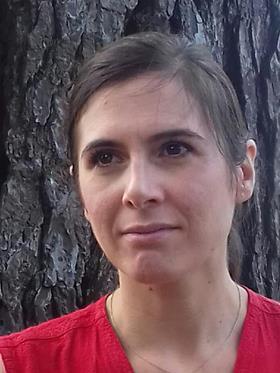
Haut et Court
Laure Caillol - head of acquisitions
Haut et Court is an active buyer on the festival circuit and also generates its own in-house productions. Upcoming releases on its autumn slate include Thomas Vinterberg’s Another Round, Malou Reymann’s A Perfect Family and Sarah Gavron’s Rocks.
Which festivals are you attending in person and which ones are you participating in digitally?
We hope to be in San Sebastian in person and participate digitally in the others. Everything will depend on the situation. We feel a digital presence can be equally effective. Even before our experiences last June [at the Cannes virtual market] we had already opted for digital presences at last year’s Toronto and Venice for acquisitions. That didn’t stop us from buying two films!
What were the films?
Alejandro Amenabar’s While At War and Sarah Gavron’s Rocks.
What did you learn about doing business remotely at the virtual Cannes Marche?
We really appreciated having a framework within which to reconnect with our sellers. We quickly got into the market mind-set of being very curious and ready to make acquisitions, notably of films that were in post-production or completed.
We also saw how buzz could build within a digital market, as was the case with one of our titles, Gagarine by Fanny Liatard and Jéremy Trouilh. But we missed the wider feedback of the general public and the mainstream press as well as one-on-one meetings with our contacts and informal exchanges with other distributors.
Are you hoping to buy roughly the same amount of films at the autumn festivals that you do normally?
We’re always ready to make an acquisition if a film grabs our attention but we already have a very packed line-up, not only because of Covid-19 which has delayed some of our films that are on post-production but also because we have a lot of in-house productions in the pipeline for 2021.
Will you look for more films for VoD only?
Theatrical remains at the heart of our activities but from time to time we buy a title for VoD only as was the case with Almodovar’s Tie Me Up! Tie Me Down!
Has the pandemic influenced the sorts of films you’re looking for? Do you think it has changed audience tastes?
Our desire for a cinema, with a singular gaze which questions the world, remains intact and is still valid. Of course this situation has influenced us and our tastes have also evolved naturally over time. We’ve been interested in acquiring comedies for some time now, for example, and this undoubtedly corresponds with audience tastes, especially at this time.
BENELUX
By Geoffrey Macnab
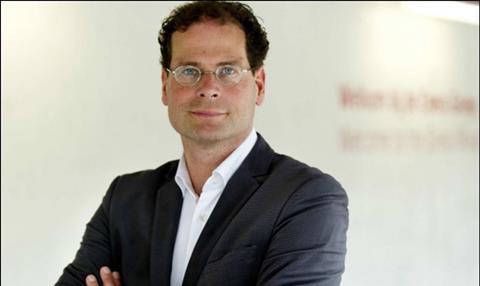
Splendid Media
Erik Engelen - Director of acquisitions
Amsterdam-based Splendid Media is part of Germany’s Splendid Medien group that distributes across Benelux. The company also produces its own low-budget Dutch youth-oriented Misfit comedies. In recent years, Splendid has released films including Moonlight and Hereditary and bought titles such as Fisherman’s Friends and Arab Blues last year.
Are you planning to attend any of the autumn festivals?
We are not going to attend anything in person. It is going to be all digital, unfortunately. The fact Toronto already has a slimmed-down version doesn’t make it very attractive. There are also travel restrictions and potential quarantine regulations. Business- wise, it is simply too complicated.
Are you confident you can do business remotely?
The positive points from those digital experiments such as the virtual Cannes market is that a digital component should be kept by festivals, even after the Covid-19 crisis ends. For presentations, it makes more sense to pre-record talent and then share it with the rest of the world on a specific date prior to a market, rather than have everybody travel to a crowded room in the Majestic in Cannes at a specific point of time. That makes no sense for any buyer or sales company.
We made several acquisitions during the virtual Cannes, including the opera-based romantic comedy Falling For Figaro from WestEnd Films. It’s a perfect movie for the Benelux market; we did not pick it up for Germany.
Overall, we were pleasantly surprised by how it went. But the thing missing in a digital market is the hype around movies. There’s no such thing as a movie that pops out of nowhere and becomes the next big thing.
Do you think you will buy roughly the same number of films as you would normally?
We have been extremely careful not to buy too much and if we bought something, we wanted to make sure we had a very specific plan for that movie.
Are you planning to buy any titles for VoD only?
We are now giving theatrical releases to titles we originally intended to release digitally: Richard Stanley’s Color Out Of Space starring Nicolas Cage, We Summon The Darkness starring Alexandra Daddario, war drama The Last Full Measure starring Sebastian Stan and Christopher Plummer, and Korean horror film Peninsula. The Dutch market is such a theatrical market — people love going to the cinema. Arthouse titles aimed at older audiences may be doing slow business but anything targeted at a younger demographic seems to be working.
Are you considering buying a different kind of film to usual?
We would be very careful with heavy drama, I doubt that is something the audience wants to see right now. A good movie sells itself.
RUSSIA
By Geoffrey Macnab

Capella Film
Nadezda Motina - CEO
Capella Films had a box-office hit in 2019 with Green Book, winner of the Oscar for best film, and has successfully handled the Russian theatrical releases of other US films including Molly’s Game and I, Tonya. At the start of 2020, Capella had been planning to release two new titles theatrically each month but shifted strategy once the pandemic took hold and bought older titles that had not yet been released in Russia, including John Lee Hancock’s The Founder starring Michael Keaton, and Lenny Abrahamson’s Room, for VoD release.
Are you planning to attend any of the autumn festivals?
No. This year I will attend all the festivals digitally because it is still not clear when the borders will be open for travel.
What did you learn from the virtual Cannes Marché about doing business remotely?
It was an interesting and fruitful experience because everything was organised well. All the screenings started on time and you did not have to wait in line to see the movies you wanted. We made several acquisitions including Dan Gilroy’s AI-based drama Faster, Cheaper, Better.
Are you hoping to buy roughly the same amount of films you do normally?
I feel quite hopeful about Toronto. I know business is going on and that companies are putting together new projects. I am looking forward to screening completed projects and also to considering titles for 2021 and 2022. Last year we bought Jon Lucas and Scott Moore’s romantic comedy Jexi, about a man falling in love with his cellphone starring Adam DeVine, and Drake Doremus’s romantic drama Endings, Beginningsstarring Shailene Woodley.
Will you look for more films for VoD only?
For the next year and the year after, I am focusing on theatrically driven movies but during the Covid-19 period, to support my staff, I shifted my focus to VoD and bought several titles for digital release.
Do you think audiences will be drawn to a different kind of film following this difficult period?
Early in the crisis I noticed audiences were interested in films about contagion so we bought the South Korean disaster movie Flu. But I think that by the end of April and the beginning of May, audiences were tired of being scared and wanted to have uplifting comedies. I could see that focus shifted to these light movies that present beautiful pictures and positive emotions.
ITALY
By Gabriele Niola
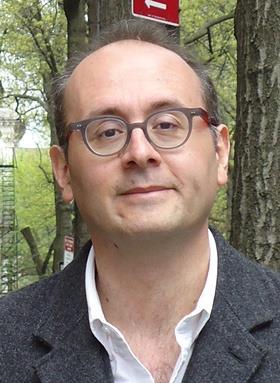
Lucky Red
Stefano Massenzi - Head of acquisitions and business affairs
Distributor and producer Lucky Red created the MioCinema.it streaming platform during the Italian lockdown, which split revenues with indie cinemas. Library titles joined new films such as Ladj Ly’s Les Misérables. Lucky Red bought Armando Iannucci’s The Personal History Of David Copperfield in Toronto last year. Massenzi says the company normally buys 60% of its annual slate at Cannes.
Are you planning to attend any of the autumn festivals?
All of them digitally, and [CEO] Andrea Occhipinti will be at Venice. We tend to buy films before they are presented at festivals so in Venice there’s few for us to discover. We never go to San Sebastian; Toronto and AFM are more important.
What did you learn from the virtual Cannes Marché about doing business remotely?
It’s difficult for newcomers to attend a market with no human contact, but we’ve learned we don’t need to attend in the same way we’ve all learned we don’t really need to go to the office every day.
Are you looking to buy more films for VoD only?
It’s not an interesting business model for us. Films are pricey and VoD-only distribution gives marginal revenues. SVoD is more interesting, and Italy has many players in that arena, including RAI’s free platform Raiplay.
Are you looking for a different kind of film this year?
There will be a drought in a year caused by the productions that have stopped. Maybe there will be space for films different from the usual ones.
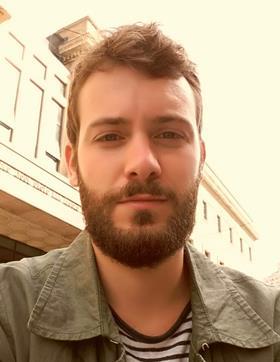
Academy Two
Eddie Bertozzi - Head of distribution
Exhibitor/distributor Academy Two handles mostly arthouse films and released Parasite in 2019. Academy Two did not release any of its titles digitally while cinemas were closed, and is getting back to theatrical distribution in September with Haifaa Al-Mansour’s The Perfect Candidate, which the company bought in Venice last year. It is also set to release Berlin pick-up Persian Lessons directed by Vadim Perelman.
Are you planning to attend any of the autumn festivals?
We will cover Venice the best we possibly can. Although there’s no market, it is a good reserve of titles for us. Then we will be at Rome Film Festival as the MIA Market will be probably the first physical market we will attend since Berlin. We won’t be attending Toronto, San Sebastian and the other ones, but we will follow remotely the titles that we are interested in.
What did you learn from the virtual Cannes Marché about doing business remotely?
How much we have undervalued the human factor. The digital Marché was a good initiative and it was important to attend but it is alienating. I know many are happy about the digital markets but to me they look like the death of our job.
Are you looking for more films for VoD only?
We are focused on traditional distribution, so we are looking for films that can go through all of the usual windows and can be exploited traditionally. We may acquire a film for VoD or TV distribution but that is not what we are specifically looking for.
AUSTRALIA AND NEW ZEALAND
By Matt Mueller

Madman Entertainment
Paul Wiegard - Co-founder and CEO
Australia and New Zealand-based Madman buys films to release in both territories. Cinemas have been open since May in New Zealand and since June in some parts of Australia. Madman opened the feature version of Michael Winterbottom’s The Trip To Greece the first week cinemas returned in New Zealand. Further releases in both territories include Josephine Decker’s Shirley and Dean Parisot’s Bill & Ted Face The Music.
Are you planning to attend any of the autumn festivals?
No, even travelling to our New Zealand office in Auckland is not currently possible. Fortunately, our longtime Berlin-based acquisitions executive Vera Herchenbach will represent us in Venice, along with our agent Orange Entertainment. Toronto is certainly a major festival we will participate in digitally and hope to include additional team members.
What did you learn from the virtual Cannes Marché about doing business remotely?
Schedule in some toilet breaks! In all seriousness, the deal-making pace was slowed down, the importance and absence of queue conversation. Doing the necessary homework prior to the market is critical — the condensed format and tight schedule squeezed time to catch-up. The ability to stay focused on ‘A’ priorities was heightened, without the broader market distractions.
Are you hoping to buy roughly the same amount of films at the autumn festivals you would normally?
It’s unlikely. There are simply fewer films being presented in the festivals. This is a concern. TIFF in particular is an important festival for us to acquire finished films, and for the promotion and publicity of films we represent.
Are you looking for more films for VoD only?
That’s likely. There is clearly an opportunity for the independent industry to fill scheduling holes. Even so, a key criteria for VoD-only acquisitions is premium transactional VoD potential, not just for subscription-based streaming services or linear broadcast.
Are you looking for a different kind of film this year?
Fortunately, we have already scheduled a strong slate for the coming year. It is highly likely we will be seeking out a greater share of Australian and New Zealand films, if the opportunities present. We are of the view there will be greater support for local stories and we have more control in the release strategy.















![[L-R]: Amanda Villavieja, Laia Casanovas, Yasmina Praderas](https://d1nslcd7m2225b.cloudfront.net/Pictures/274x183/6/4/1/1471641_pxl_20251224_103354743_618426_crop.jpg)









No comments yet